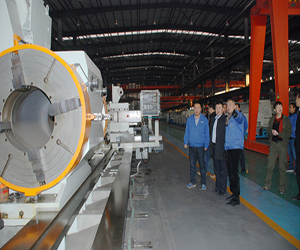List of validity period of all solutions, reagents and drugs
Laboratory commonly used chemicals, reagents, due to the different nature of the validity of all different, such as our commonly used buffers, organic reagents, standard solutions, mobile phases, standards, prepared solutions, retained samples, etc., have a certain expiration date.

How to correctly grasp the expiration date?
A How to determine the reagent expiration date
The expiration date of reagents is an important factor affecting the accuracy of experimental results. In the actual use of the process, people are always accustomed to use the production date to determine the validity of chemical reagents, in fact, this is not true.
Chemical reagents are not like food and drugs have a strict shelf life, chemical reagents generally do not have a specific shelf life requirements and boundaries, which is related to the shelf life of chemical reagents affected by a variety of factors; according to the chemical nature, preservation conditions, etc., and then combined with the actual situation of the work of the reagents to determine whether the reagent deterioration, can continue to use.
The nature of the reagent on the impact of the expiration date
Chemical reagents generally do not specify the shelf life, to determine whether the reagent deterioration is mainly based on experience and do a comparison of old and new reagents.
The expiration date of chemical reagents varies greatly with the chemical properties of the chemicals. In general, the longer the shelf life of a chemically stable substance, the simpler the preservation conditions.

The following principles (general principles, not absolute principles) are generally followed:
1
Inorganic compounds, as long as they are properly stored and the packaging is intact, they can theoretically be used for a long time. But easy to oxidize (such as sulfite, phenol, ferrous salts, iodide, sulfide, etc. should be its solid or crystal sealed preservation, should not be stored for a long time; aqueous solution of sulfurous acid, hydrosulfuric acid solution to be sealed; potassium, sodium, white phosphorus should be used in the form of a liquid seal), easy to deliquescence of the substance, in the light, cool, dry conditions, can only be a short period of time (1 to 5 years) within the preservation of the specific to look at the packaging and storage conditions It depends on whether the packaging and storage conditions are in accordance with the regulations.
2
Organic small molecular weight compounds are generally more volatile and can be stored for a long period of time (3~5 years) if the packaging is well sealed. However, they are easy to be oxidized, decomposed by heat, polymerized and photosensitive, etc., and can only be stored for a short period of time (1~5 years) under the conditions of avoiding light, coolness and dryness, depending on whether the packaging and storage conditions are in accordance with the regulations.
3
Organic macromolecules, especially lipids, polysaccharides, proteins, enzymes, peptides and other life materials, are very susceptible to the effects of microorganisms, temperature, light, and loss of activity, or deterioration and corruption, therefore, they should be preserved under refrigeration (freezing), and for a shorter period of time.

4
Reference materials, standard materials and high-purity materials, in principle, should be preserved in strict accordance with the preservation regulations, to ensure that the packaging is intact, to avoid the influence of the chemical environment, and the preservation time should not be too long. In general, the reference substances must be used within the validity period. The storage time at room temperature (15ºC~25ºC) should not exceed 2 months. After two months, the reference material should be re-calibrated or checked before use.
5
Culture medium: Prepare and sterilize the medium according to the regulations, cool it to room temperature and store it in a dark place (in the refrigerator as far as possible), the prepared medium should be used up within 1 month.
6
Unless otherwise specified, the validity period of test solution, buffer and indicator (liquid) is half a year.
The validity period of mobile phase and purified water for liquid phase is 15 days.
7
Unless otherwise specified, liquid reagents are valid for one year after opening and solid reagents are valid for three years after opening.
Environmental conditions on the validity of
1
Influence of air: Oxygen in the air can easily oxidize and destroy the reducing reagents. Strong alkaline reagent can easily absorb carbon dioxide and become carbonate, moisture can make some reagents deliquescence, agglomeration; fiber, dust can make some reagents reduction, discoloration and so on.
2
The effect of temperature: the speed of reagent deterioration is related to temperature. High temperatures in summer will accelerate the decomposition of unstable reagents; winter cold will promote the polymerization of formaldehyde and precipitation deterioration.
3
The effect of light: ultraviolet light in sunlight can accelerate the chemical reaction of some reagents and make them deteriorate (such as silver salts, mercury salts, bromine and iodine potassium, sodium, ammonium salts and some phenolic reagents).
4
Effect of impurities. The purity or impurity of unstable reagents should not be overlooked in their deterioration. For example, pure mercuric bromide is practically unaffected by light, whereas mercuric bromide containing traces of mercuric bromide or organic impurities tends to darken in the presence of light.
5
Effect of storage period. Unstable reagents may undergo disproportionation polymerization, decomposition or precipitation after long-term storage. In the storage period and validity of the liquid if found to have delamination, turbidity, discoloration, mold and other abnormal phenomena, mobile phase for sample detection, the retention time of the sample or the relative retention time of the sample has changed significantly, the solid such as moisture absorption, discoloration and other abnormal phenomena should be discontinued.
Make

